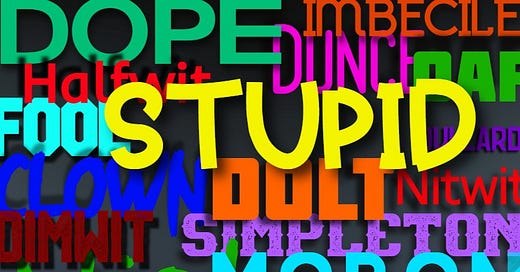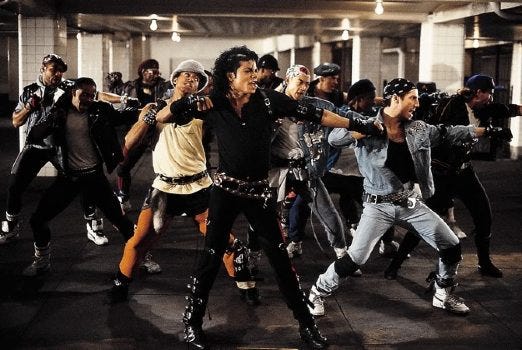A long time ago — this was the 1820s, if memory serves — I was in a job interview. It was some entry-level copy room fodder job at one of the countless, interchangeable nonprofits in DC (it might have been the Foundation for Freedom and Democracy, or maybe the Democratic Freedom Foundation). The guy interviewing me was wearing a neckerchief. I submit that there may be no greater indignity in life than to be judged by a man wearing a neckerchief.
The discussion was about Africa, because aid to Africa was the group’s secondary mission (its primary mission was to keep 50 liberal arts majors in DC gainfully employed). At one point, Professor Neckerchief looked at me and — in the soberest of tones — said: “The AIDS rate in Africa is 80 percent.”
Now: Back then, I was twice the idiot that I am now. I recall that I was wearing navy soccer socks under my slacks, since they were the only ones I owned that resembled dress socks. But even I knew that the AIDS rate wasn’t 80 fucking percent.
I smiled politely. It’s worth noting that we were both white; my nonwhite readers might not be aware (though you probably are) that this is a moment when white liberals must play the I Shall Demonstrate More Concern For This Issue Than You game. But I suck at that game, so I said “Well, thankfully, I don’t think it’s that high.” At which point the Marquis de Neckerchief looked me in the eye, and — in a voice bordering on a whisper — said: “I’m afraid that it is.”
I didn’t get the job. On the phone with my mom that night, I said the obvious: “The guy was a moron.”
I’m telling this story to illustrate just how casually and guiltlessly we use “this person is a moron” as an explanatory variable in everyday life. Why did Papa John’s fuck up your order? Because the guy was a moron. Why is that lady blocking the airport moving walkway with her luggage? Because she’s a moron. Why did Lord Grantham invest his family’s fortune in a Canadian railway company even though Canada is known for vast spaces and low population, i.e. not ideal conditions for profitable rail travel? Because he’s obviously a grand ol’ fancy moron.
But you can’t call people morons in politics. People do it all the time, of course, but it’s considered bad form. It’s an ad hominem attack. If you called someone a moron on Intelligence Squared, you’d invoke a wrath from host John Donvan that I shudder to even imagine.

Is the rule that you can’t call someone a moron in politics a good rule? If stupidity works as an explanatory variable in most walks of like, then why not also in politics? Is the rule just decorum fetishization? Does it stifle our ability to understand what’s happening? Could it actually encourage more idiocy by creating an environment in which bad reasoning can flourish, much like how the koala — by far the dumbest marsupial — survived because it had no predators? Let’s explore that.
What is intelligence? We don’t really know. Entire books are written on the topic, but there’s no consensus. Intelligence might never have a universally-accepted definition, but it’s certainly a thing. After all, I’m sure we all agree that we’re all smarter than dogs, including even that border collie who knows 1,000 words. I know like 1,600 words. So fuck you, Smart Dog.
Intelligence is a thing, and there’s no reason to believe that that thing exists in equal amounts in every human being. No trait exists in equal amounts in every human being, not height, not metabolism, not vocal range, not empathy, not ability to fall asleep on a bus. I’m sure you didn’t bat an eye earlier when I called Young Me “twice the idiot that I am now.” Because of course I’m smarter now; I’ve had more time to develop my brain and fill it with stuff. No-one disputes that intelligence differs within the same person over time, so no-one should dispute that intelligence differs between people.
I should pause here to distinguish between intelligence and knowledge. When I say “intelligence”, I basically mean “how well your brains works” (and I’ll see you in the comments section, five percent of my audience who are cognitive scientists and don’t like that definition). “Knowledge” would be the stuff in your brain. All of us are knowledgeable on some topics and ignorant on others. I’m knowledgeable about mid-’90s grunge rock, but ignorant about classical literature. My ignorance of the rules of cricket is near-total. My ignorance of what the fuck White Lotus was about is absolute and yet somehow expands the more I read about it.
We’re all ignorant about some things sometimes. Maybe that’s why calling someone ignorant — or, in the language of today, a “low-information voter” — is acceptable in politics. Just barely. Saying “you need more information” is a big swing that’s unlikely to be received well — you should only say it on a date if you’re trying to avoid buying another round of drinks — but it’s not the low blow that “stupid” is considered to be. There are actually situations in which a person might welcome more information. And yes: Those situations only exist in theoretical physics, and all real-world political discussions are frantic efforts to shout one’s talking points over the other person before they get off the bus or stab you in a fit of rage. But I’ve seen the math, and it’s possible that the phrase “you need more information” could be accepted with aplomb at some time and place in a parallel universe.
In contrast, when someone says “you’re stupid,” the conversation is definitely over. It’s not immediately clear why that should be the case; I agree with Freddie de Boer’s argument that we vastly overrate intelligence. Intelligence has no moral quality; saying “he’s not smart” should be like saying “he’s not musical” or “he does not excel at kayaking”. But that’s not how it’s perceived. Calling someone stupid is considered an unforgivable assault on someone’s character, the type of insult that would have led to a duel in the 1700s or a dance-off in the 1980s.
I find this rule extremely constrictive. Often, I’m working on one of these posts and want to write “but [person or argument] is just stupid.” And it’s inevitable that I’ll end up in that territory sometimes; one of the main components of political writing is pointing out flaws in reasoning. Plus, most of comedy — if you really get down to it — is pointing at stuff and saying “that’s dumb”. I often tiptoe around the word “stupid”; I’ll say that a person “seems prone to lapses in logic” or that an argument “contains several apparent inconsistencies.” Why don’t I just cut the bullshit and say “dumb”? Sometimes I do.
And it feels like maybe just saying “dumb” should be okay! Humans are prone to poor reasoning; Steven Pinker just wrote a whole book about this. Sometimes, bad logic is the reason why a person holds a belief; stupidity doesn’t magically stop being a causal variable once you enter the realm of politics. Some people use poor logic so frequently that it almost seems silly not to say “we should ignore these morons.” Which people am I talking about? Why: Your political opponents, of course! I’m sure we can agree: Those people are fucking dunces. If they had two brain cells to rub together, they’d see things your way.
I don’t think we need to ignore stupidity — or “poor reasoning”, if you want to be polite — as an explanatory variable. Sometimes, you’ll be examining a situation and thinking “Why do people believe X?” And the answer will be “because they’re using bad reasoning.” Colloquially: They’re being dumb. If you reach that conclusion frequently, you’re probably just an asshole. But I think it’s okay to reach that conclusion sometimes. After all, the alternative would be to say “We must preemptively rule out this variable because it’s just too rude.” And, personally, I’m not comfortable with that.
But there’s a huge difference between privately observing that someone is being dumb and publicly calling them dumb. On a personal level, calling someone dumb is extremely anti-social; your preschool teacher was right to pull you out of playtime for calling Jenny H. a dum-dum (even if, on an epistemic level, the charge was warranted). And I’m going to answer the question I posed in the subheading with a “yes” — I think not calling people stupid is a good rule. Calling someone stupid in politics should be considered out-of-bounds.
However: I’m not endorsing this rule because I think it makes things more polite. This is not a decorum thing. I generally favor civility in politics, but I think it has its limits. I think that civility, taken to extremes, can be a safe haven for bad arguments. I think civility should rise and fall in proportion to the quality and stakes of an argument; I don’t feel the need to be polite to the Pizzagate crowd or Nicholas Maduro. And while I love the exceedingly-civil atmosphere of Intelligence Squared, that climate is only possible because the participants have been pre-selected for their presumed commitment to common values. The high level of agreed-upon facts and general adherence to principles of good-faith debate is why Intelligence Square can enact such a rigid code. And it’s also why that code can be enforced to the hilt by Knight Templar of Oxford-Style Debating John Donvan.
So, the rule isn’t about politeness. It’s about keeping the discussion going. I think “don’t call someone stupid” is a good rule because calling someone stupid cuts off debate. When you make that charge, you’re saying “You don’t have the brain function needed to continue this conversation,” and the conversation ends. I think that’s a bad thing, because I’m one of those Harper’s Letter liberals who believes that open discussion is the heartbeat that keeps blood pumping to a democracy’s brain. I’m a believer in the wisdom of crowds, writ-large (albeit over absurdly-long timeframes), and I’ve been wrong enough times in my life to want people around to talk some sense into me.
Okay, cool, end of column.
Except for one more thing: Trump.
I’ve endorsed the principle that you shouldn’t call your political opponents stupid. How many times did I violate that principle during his presidency? I don’t know…millions, possibly billions. Honestly, one reason why I’m writing this is because he’s going to run again and I want to get my bearings. I know that the hardest test case of this principle is about to be rubbed in my face for a minimum of two and a maximum of six — actually, a maximum of six plus — years. How am I going to adhere to the principle for that long? Trump’s poor decision-making and refusal to lean are directly relevant to his job performance, and he does things like give press conferences in which he basically says “Is the jury still out on whether it’s good to drink bleach?” Does he deserve this protection? Should I just ditch the principle?
Here’s my current thinking, open to revision if Trump announces his candidacy while making toast in a bathtub. His ignorance is fair game. Nobody, especially a person who receives detailed briefings as part of his job, has a right to know that little. And it’s okay to call ideas stupid; the point of discussion is to separate good ideas from bad ones. But even when talking about ideas, it would probably be better if I use clunky “appear to be based on faulty logic” euphemisms most of the time.
Will I stick to those rules? We’ll see. That Trump fella…he’s a handful. But I think that assuming the other side’s basic cognitive functions is required to enable debate. To abandon that idea, given my beliefs about democratic pluralism, would be completely fucking…uh…
…
…
…illogical given the agreed-upon priors.







The problem with calling someone an idiot is that everyone is an idiot. So if you say that someone believes something dumb because they're dumb, well yeah! Of course! They're human; I already knew they weren't the brightest. So it's not a full explanation of their beliefs.
When I saw the headline, I thought this was going to be about “ablest language.” In my (very woke) world, you get scolded for even using the words idiot, dumb, crazy, moron, lame, and so on. You also can’t say stuff like “blind to the consequences” or “fell on deaf ears.”
I’ve been so conditioned by the scolds that I wouldn’t call any politician a moron. I’d think it and then remind myself I’m supposed to say something like, “He doesn’t know many facts, and his ideas are bad.”